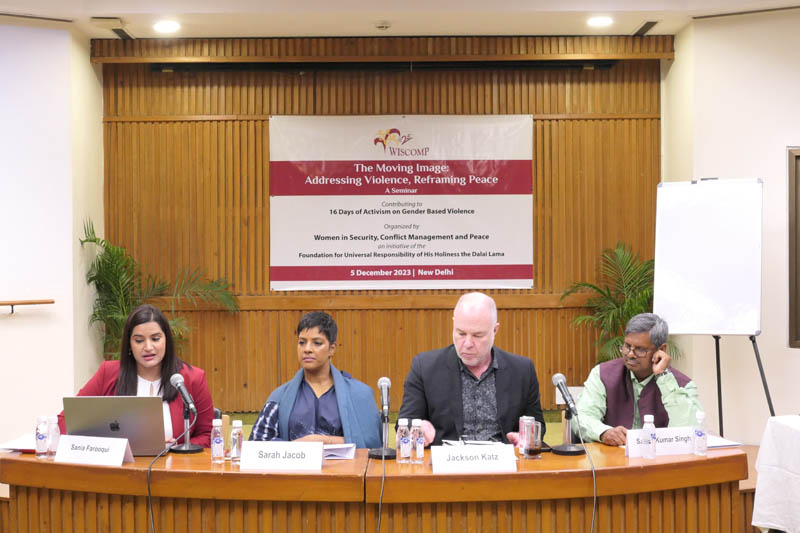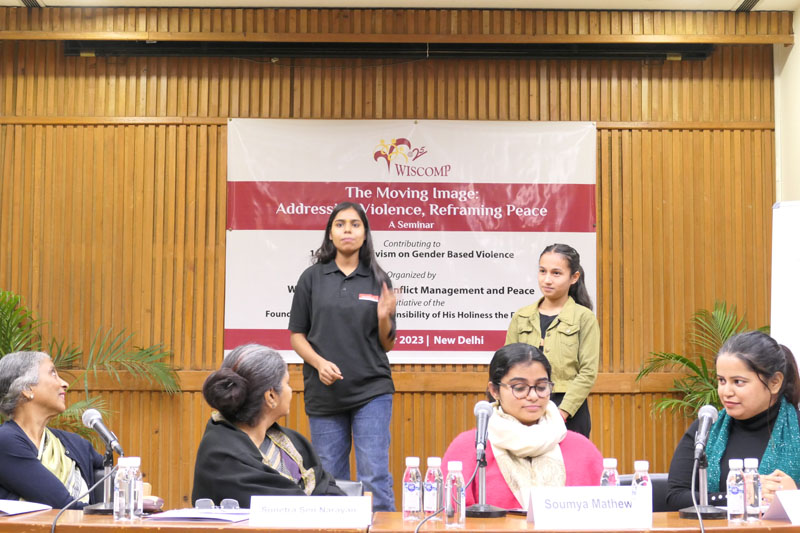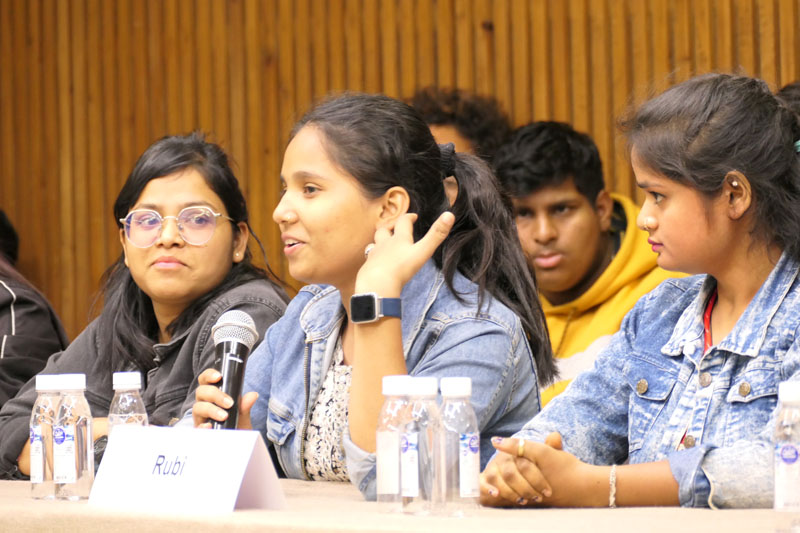
The WISCOMP roundtable “The Moving Image: Addressing Violence, Reframing Peace” sought to understand the new challenges presented by internet and social media as means of information and communication. It also explored how the moving image – documentaries, advertisements and short clips — can be harnessed to reduce violence in efforts to build peace.
The speakers addressed a myriad of questions ranging from How can the moving image which nearly every hand today can create, be used more mindfully – with greater responsibility and understanding of its potential to both create and destroy? To both heal and hurt. What lessons can be learnt from the work of those who use film to address gender based violence (GBV)? Can such strategies have resonance across cultural contexts or is patriarchy embedded differently in particular contexts? How are moving images being used: a) as catalysts for healing and reconciliation; b) to promote peace and social justice; c) to deepen inter- cultural understanding; and d) more critically reflect on events unfolding before us rather than as passive consumers? What new tools are available as fact checks, as counter narratives to cultures of violence and for awareness raising?

Filmmakers, media practitioners (digital and print media), researchers and representatives from organizations working on building peace, both from the grassroots and the policy field. Some of the speakers include.Sarah Jacob (Journalist & Formerly Senior Editor, NDTV), Sania Farooqui (Journalist & Field Producer, CNN), Dr. Jackson Katz (Film Maker, Educator & Author), Satish Kumar Singh (Senior Advisor, Centre for Health & Social Justice), Aaradhana Kohli Kapur (Independent Film Maker & Gender Training Facilitator), Pamela Philipose (Journalist& Senior Fellow, Indian Council of Social Science Research), Soumya Mathew (Assistant Manager for Digital Engagement, Breakthrough-India), Krutika Kapil (Senior Coordinator, Breakthrough-India), Rubi (Member, Managing Committee, Feminist Approach to Technology), and Dr. Sunetra Sen Narayan (Professor, Indian Institute of Mass Communication).

WISCOMP looks to such deliberations to provide insights into the possibilities for Digital Peacebuilding in the Indian context – the use of the media to nurture not just negative peace, i.e. the absence of overt violence, but also to challenge structural and cultural violence that gnaws and debilitates by generating everyday fear and insecurity. It will explore the kinds of leadership required to enhance the power of the media to positively address and perhaps even mitigate conflict.
